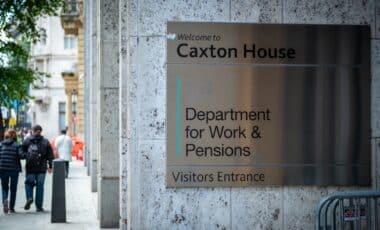The UK government has been urged to reconsider its approach to welfare reform, as experts warn that restricting eligibility for disability and sickness benefits could disproportionately impact vulnerable claimants.
According to the Resolution Foundation, proposed cuts would not only place additional financial strain on those who rely on support but also deliver relatively small savings in the long term.
With welfare spending under increasing scrutiny, ministers are exploring ways to curb rising costs. However, past attempts to tighten eligibility have been met with legal challenges and public criticism.
The think tank suggests that instead of reducing access to benefits, the government should focus on restructuring payments to create a fairer system that balances financial sustainability with adequate support for those unable to work.
Pressure on the DWP to Rethink Benefit Reforms
The Department for Work and Pensions (DWP) has been under pressure to reform Universal Credit (UC) and other disability-related benefits, with concerns over rising costs driving policy discussions. However, the Resolution Foundation argues that restricting eligibility should not be the primary focus of these reforms.
According to the report, the previous government’s attempt to modify Universal Credit’s Work Capability Assessment (WCA) in autumn 2023 was deemed unlawful earlier this year.
This raises concerns about the feasibility of similar reforms. The think tank highlights that freezing health-related support payments between 2025-26 and 2029-30 could save around £1 billion per year, without requiring the government to cut eligibility or remove essential support for claimants.
The Financial Impact of Benefit Cuts
One of the key concerns raised in the report is the large gap between basic and health-related Universal Credit payments. A single adult’s basic support currently stands at £393 per month, while those eligible for health-related support receive £810 per month—a significant increase that more than doubles the base rate.
The Resolution Foundation warns that this gap creates a strong incentive for claimants to apply for health-related benefits, even when alternative support might be more appropriate. Instead of restricting access, the report suggests redistributing funds across different levels of support to ensure fairer distribution.
This, it argues, would allow the government to manage costs without severely impacting those in need.
The challenge of reducing benefit dependency
Beyond cost-cutting measures, the report highlights long-term issues in moving people off incapacity and disability benefits. It points to the UK’s poor track record in supporting individuals to transition from benefits into employment, arguing that reforms should focus on improving support services rather than restricting access to financial aid.
The Institute for Fiscal Studies (IFS) has also criticised the government’s fiscal approach, warning that frequent policy adjustments in response to short-term economic forecasts create instability. It calls for a more measured, long-term strategy that prioritises financial sustainability without making drastic cuts to welfare spending.









